JIUNGE NASI WHATSAPP TU FOLLOW. BONYEZA HAPASifa za Kujiunga JWTZ Jeshi la Wananchi Tanzania
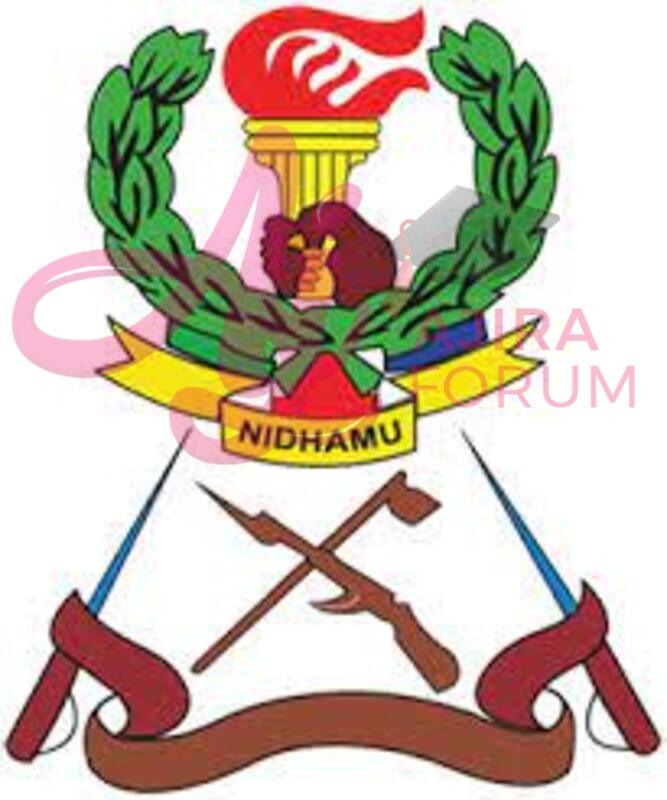
Sifa za Kujiunga JWTZ Jeshi la Wananchi Tanzania Welcome Ajiraforum.com in this Sifa za Kujiunga JWTZ Jeshi la Wananchi Tanzania Article you will get JWTZ Requirements starting from Age,Education,Behavior and Required Nationalities.
When employment, security, and safety initiatives initially started in Tanzania, our ancestors were already living here. Every member of the community was covered by the customary safeguards common to numerous communities across the nation. Traditional protection was the only form of security used by all communities at the time. Our forefathers used subpar weaponry like bows, spears, swords, and axes as basic defence mechanisms for their society. Each tribe developed a special way to train its young people to use weapons before ultimately entrusting the teenagers with the responsibility of protecting their settlements.
JWTZ Overvew
When employment, security, and safety initiatives initially started in Tanzania, our ancestors were already living here. Every member of the community was covered by the customary safeguards common to numerous communities across the nation. Traditional protection was the only form of security used by all communities at the time. Our forefathers used subpar weaponry like bows, spears, swords, and axes as basic defence mechanisms for their society. Each tribe developed a special way to train its young people to use weapons before ultimately entrusting the teenagers with the responsibility of protecting their settlements.
Political, economic, and social developments occurred on the African continent after the industrial revolution in Europe in the 19th century. This is the first sign of foreign authority over many African countries.
Germany was granted the authority to control Tanganyika after the Berlin Conference, which divided the African continent into nations without the consent of the Africans themselves. The German army launched an initiative to remove tribal rule in the country in order to have a single administration and colonial army. Certain tribes joined the fight against the German Army because German rule aimed to entirely destroy the framework of traditional defence, politics, and local economy.
The Battle of Chief Mkwawa in 1890 serves as a perfect example of how some tribes in the nation had strong defences while using less weapons. However, a naval conflict broke out between 1905 and 1907 as a result of Chief Mkwawa’s loss to the Germans.
The war put Tanganyika’s history on the map of the world as several tribes used their traditional weapons to oppose the invasion of European forces but unitedly stood hard against their African identity.
At the time of partition, Africans were denied the right to self-defense, which changed the security situation and signalled the start of the country’s military force’s development.
The military movement in the country took on a new dimension after the First World War, which lasted from 1914 to 1918, when the Germans lost and pillaged the colonies they occupied as a condition of the war’s loss. Tanganyika was placed under British supervision and within the purview of the UN Security Council. But from that point on, the formal Army institution in charge of Tanganyika was the Kings African Rifles (KAR).
JWTZ RECRUITMENT REQUIREMENTS
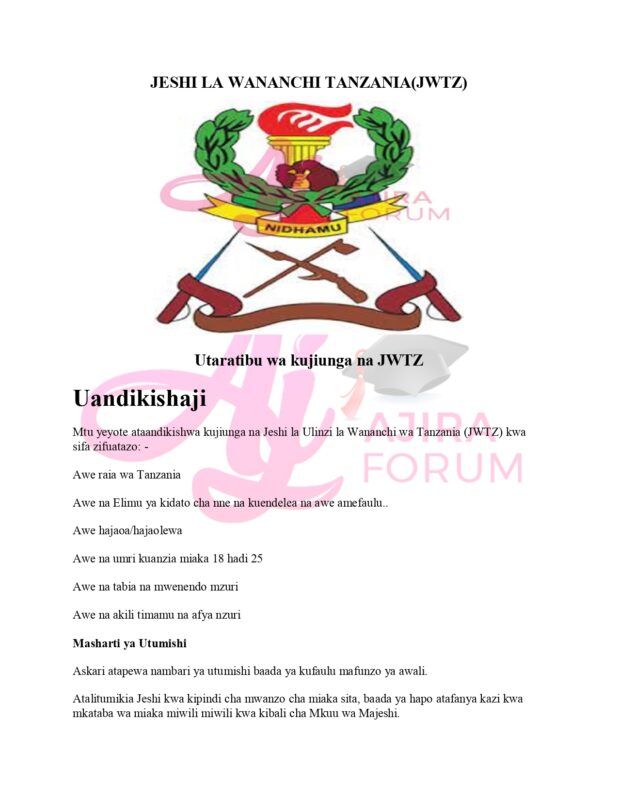
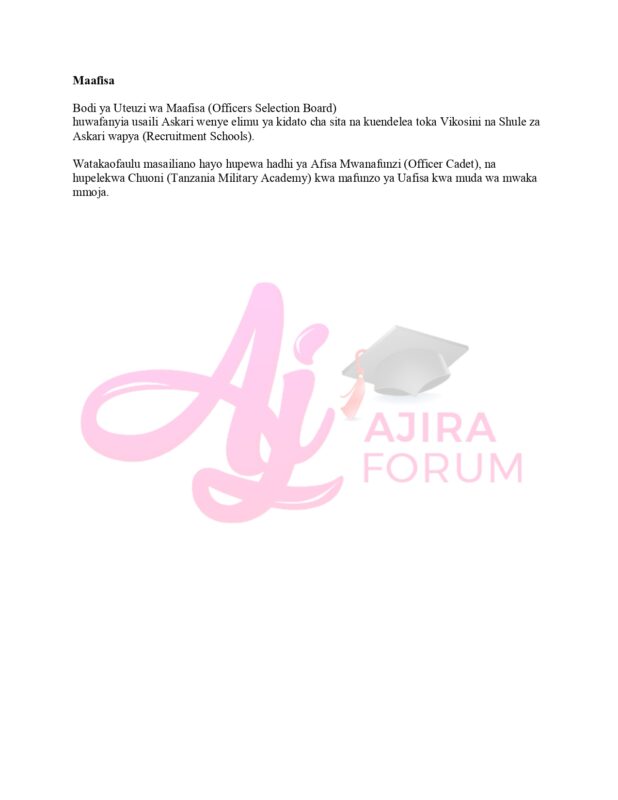
For More info Kindly Visit https://www.tpdf.mil.tz/

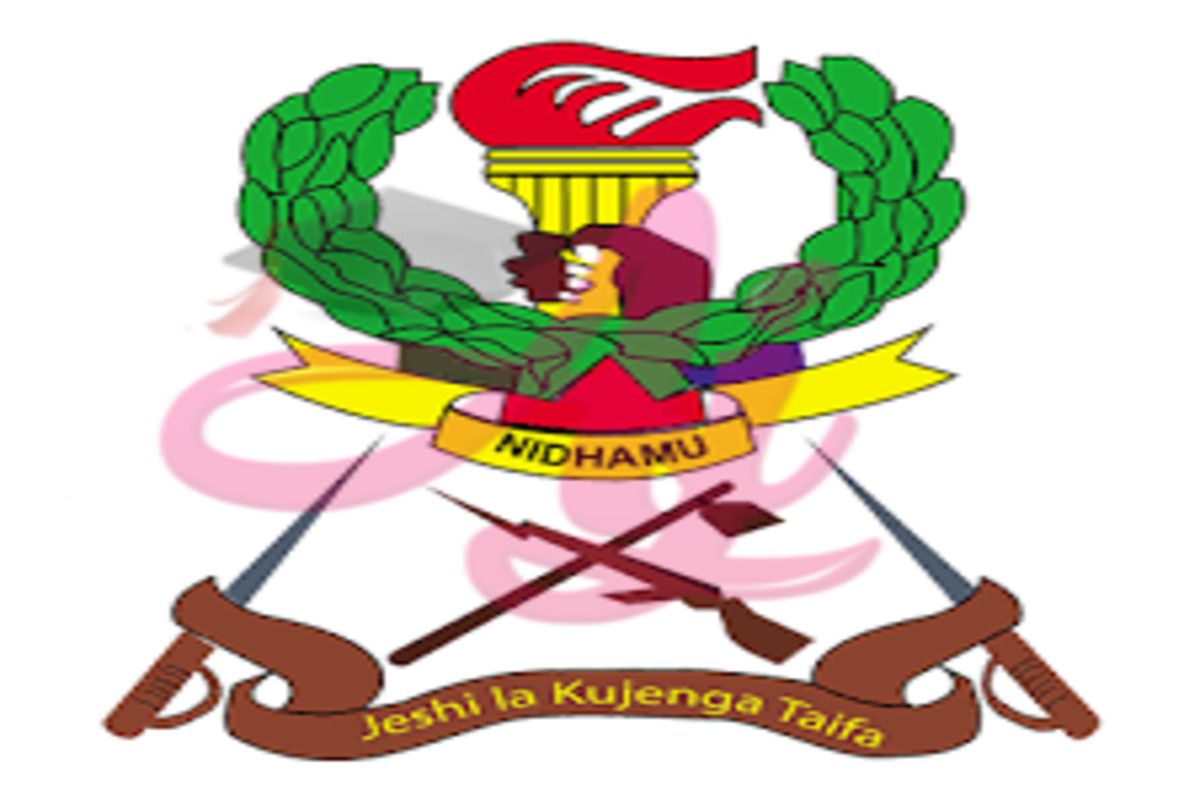
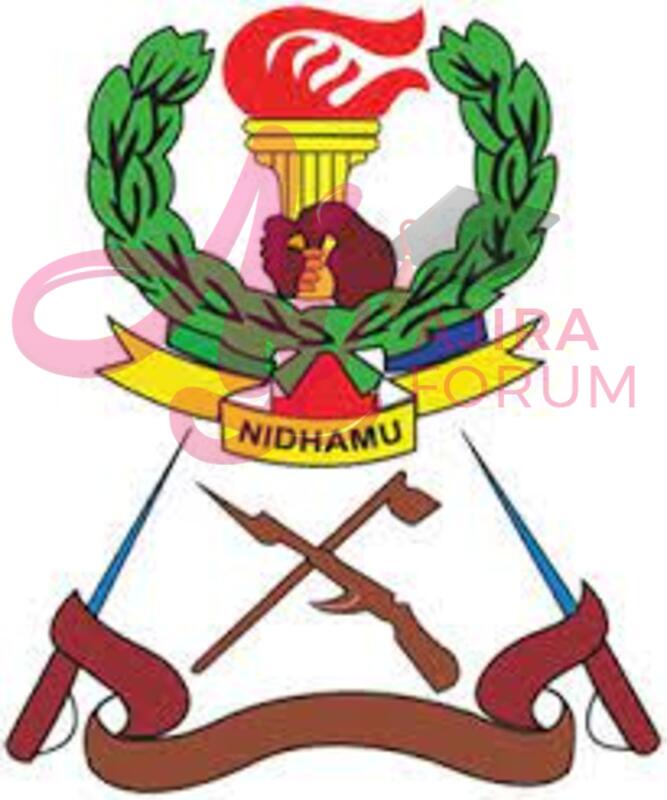

Be the first to comment